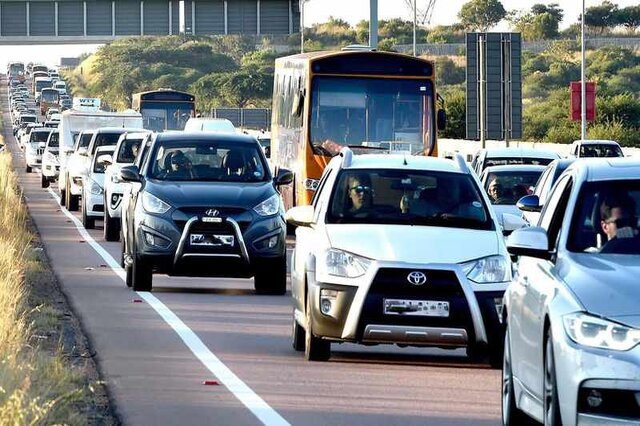The AARTO Act, which will be implemented from next year following a court ruling confirming its constitutionality, is expected to help improve the behaviour of South Africa’s road users.
According to Monde Mkalipi, of the Road Traffic Infringement Agency (RTIA), more than 12 000 people die on South Africa’s roads annually, and that “one road death is one too many”.
“AARTO will play a critical role in changing the behaviour of road users for the better. We all need to strive towards zero fatalities in our roads,” he said.
This comes after the Constitutional Court recently confirmed the legality and validity of the AARTO (Administrative Adjudication of Road Traffic Offences) Act.
The Government welcomed the judgment on the constitutionality challenge brought by civil action group Organisation Undoing Tax Abuse (OUTA).
According to OUTA, the legislation “unlawfully intrudes upon the exclusive executive and legislative competence of the local and provincial governments envisaged in the Constitution, preventing local and provincial governments from regulating their own affairs”.
On Thursday, JP Smith, Cape Town’s mayoral committee member for safety and security, told CapeTalk that while the City initially had some reservations about new legislation, it will be implemented by mid-next year as per the court’s ruling.
The legislation legalises fines by email and introduces a demerit system that will strip repeat offenders of their licences.
Speaking to SAnews, Transport Minister Sindisiwe Chikunga said the ruling affirms government’s long-held view that the law is necessary to the state’s efforts in arresting the carnage on the country’s roads.
She said the implementation of this law across the country has been pending for 25 years, with pilots in place in the Cities of Johannesburg and Tshwane.
Chikunga said the government would move with speed with the implementation of the demerit system, which is an important cornerstone of the AARTO Act. The system will involve demerit points being allocated according to the severity of infringements committed.
Under the demerit system, vehicles are not punished by the system, but the operator is held responsible for the use of the vehicle.
Upon implementation of the demerit system, everyone will commence with zero points.
If the demerit points exceed the maximum 15 points, a person, operator or juristic person who is not an operator will be disqualified from driving or using the vehicle for three months for every point surpassing the 15 points.
The licence will be cancelled after a third disqualification.
Mkalipi said the AARTO Act will not displace national and provincial laws and municipal bylaws.
“But [it] will rather encourage compliance with these laws. Voluntary compliance with traffic laws is the new culture AARTO seeks to instil among our road users.”


